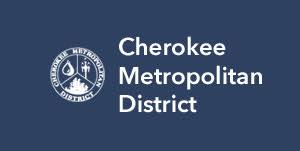Q. What is the Earned Income Tax Credit and do I qualify?The Earned Income Tax Credit (EITC) is a tax credit available to taxpayers who have earned income and meet certain income limits and other criteria.Individuals without a qualifying child must be at least 25 years old, but under 65. Their adjusted gross income for 2015 must be less than $14,820 for single filers and $20,330 for married filing jointly. These taxpayers could be eligible for up to $503 worth of tax credit.The credit and income limits increase is based on family size and filing status. A taxpayer who is married filing jointly and has three or more qualifying children, for example, and has an income limit of less than $53,267, could be eligible for a credit up to $6,242.The EITC is a refundable credit, which means it can result in a refund for the taxpayer even if taxes are not owed or there were no withholdings. Basically, it can create a refund or add to your existing refund on your tax return.The IRS says that about a third of the people eligible for the credit fluctuates each year because of changes to their marital, parental or financial status. If you lost your job and got a new one where you earn less, you may be eligible. Maybe you are a grandparent who has returned to work to earn money to raise your grandchildren; you could be eligible.Your tax preparer can help you find out if you qualify. Itís worth checking. The IRS said that in 2013, almost 28 million workers and families received $66 billion in Earned Income Tax Credit. The average payout was $2,400.Q. Should I itemize or use the standard deduction?Did you know that fewer than half of all Americans itemize their tax deductions? Instead, they take the standard deduction. That may be a smart decision for some, but others may be missing out on deductions that could decrease their tax bill.For the 2015 tax year, the standard deduction is $6,300 for single taxpayers, $9,250 for heads of household, and $12,600 for those married filing jointly; with an extra $1,250 for people 65 years of age or older and/or blind.Often a home purchase and the resulting write-offs of mortgage interest and real estate taxes are reason enough to itemize deductions. Itemizers are also able to deduct other things on Schedule A, which is filed with Form 1040. These include charitable contributions, medical expenses (if certain thresholds are met), some unreimbursed employee expenses, a portion of the cost of registering your vehicle and many more.A Government Accountability Office report, ìTaxpayers Who May Have Overpaid Federal Taxes by Not Itemizing,î estimated that almost 70 percent of all individual taxpayers took the standard deduction, and more than two million collectively overpaid the government by $945 million because they did not itemize, although they were eligible for deductions. About 24 percent overpaid by $500 or more.The report was published in 2002, but taxpayer patterns have not changed dramatically. In tax year 2012, nearly two-thirds of all individual taxpayers took the standard deduction.If youíre not sure whether to take the standard deduction or to itemize, bring all your receipts to your tax preparer and let him or her find all the deductions you deserve.Jeremy Kniffen is the owner of Liberty Tax Service in Falcon, Colorado. To find the Liberty Tax office nearest you call 866-871-1040 or visit http://LibertyTax.com.







